Clean Slates and The Quality of Mercy
Clean Slates and The Quality of Mercy
I did a lot of Shakespeare in high school.
Wait… I’ve just made The Bard sound like an illegal drug. (Although, given the beauty of his writing, perhaps it is!)
To rephrase – I studied a lot of Shakespeare in high school. And since, I grew up not far from Stratford, Ontario that meant I also had the privilege of seeing many of Shakespeare’s plays performed live, on stage. Those productions were amazing.
So that could explain why, when Dean gave this passionate, and heartfelt speech by Rufus’s graveside:
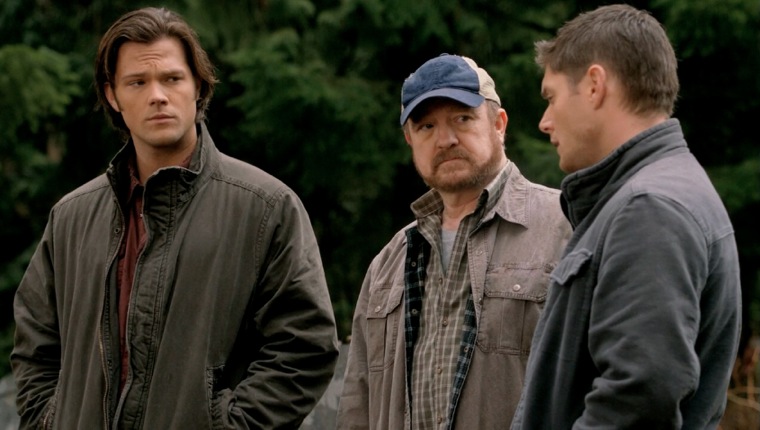
Dean: I mean at the end of the day you two are family. Life’s short, and ours is shorter than most. Are we going to spend it wringing our hands? Something’s going to get us, eventually, and when my guts get ripped out”¦ Just so you two know?.. We’re good. Blanket apology for all the crap anyone’s done, all the way around.
Sam: Some of us pulled a lot of crap Dean.
Dean: Well, clean slate”
I actually heard Portia, gently educating the Merchant of Venice.
It droppeth as the gentle rain from heaven
Upon the place beneath. It is twice blest:
It blesseth him that gives and him that takes.
Tis mightiest in the mightiest; it becomes
The throned monarch better than his crown.
His scepter shows the force of temporal power,
The attribute to awe and majesty,
Wherein doth sit the dread and fear of kings.
But mercy is above this sceptered sway;
It is enthroned in the hearts of kings;
It is an attribute of God himself;
And earthly power doth then show like God’s
When mercy seasons justice.
I know that mercy and forgiveness isn’t strictly the same thing. Mercy is about showing compassion, or leniency, generally to a person under your power, or control. In a religious context, it is seen as an act of divine favour.
Forgiveness is about giving up resentment, or the need for compensation, retribution or revenge.
Yet, the two are inextricably linked. Mercy is most definitely a type of forgiveness. And forgiveness is a most merciful act. And what ties them together is this concept ““ that forgiving carries a double blessing. It blesses both he who freely gives it, and he who willingly accepts it.
I never quite agreed with the heroine in Love Story when she kept saying “Love means never having to say you’re sorry.” Of course, love means saying I’m sorry! Duh!! It’s the verbal kiss that makes so many boo-boos better.
The facilitators cited the work of a researcher who was studying the concept of forgiveness. The results were quite interesting. The researcher discovered that when a person attempts at apology are rebuffed, the problems flowing from that refusal usually exceed the original insult or injury.
At the heart of it, an apology is an attempt to bring balance back to a relationship. One person has shown dominance by hurting the other. But, by offering an apology, he voluntary assumes the vulnerable position. “I humble myself before you by acknowledging that I hurt or failed you.” It causes the power dynamic to shift. The person who was wronged now has the dominant role. He gets to choose whether or not to accept the apology. Accept it, and equilibrium is restored. The scale may not balance perfectly. It may wobble, but it will likely settle fairly close to centre. However, reject the apology and the scales don’t just tip. They often break.
Denying an apology creates a chasm that keeps growing and growing, until it becomes so wide it’s impossible to cross. It plants doubt, and fear and bitterness on both sides, because it does not allow for a cathartic release, on either side.
I’ve done some stories on restorative justice, especially with respect to young (teenage) offenders. The Sentencing Circle is very common in many First Nations and indigenous cultures. It is also being experimented with, inside the larger Canadian justice system.
Here’s what happens. The offender and his group of supporters (family, friends, maybe the coach of the team he plays on) sit in a circle with the victim and his team of supporters (again family, friends, coworkers). The crime is discussed. The offender explains why he did it. His group shares how it has affected them. Then, the victim and his group explain the impact it had on their lives. Many times, the offender will offer an apology. But always, the victim gets to suggest the punishment.
People who work in this type of system say the punishment is often less than what the regular justice system would hand out. That’s because the victim has received what he or she wanted and needed ““ an acknowledgement that they’d been hurt. That is a crucial part of the act of forgiveness. It clearly states that something bad happened. Interestingly, when the outcomes of sentencing circles are tracked, results suggests that only a small percentage of the offenders end up in the justice system again. Somehow, the act of acknowledging the offense heals them too.
My favourite sentencing circle story revolves around a young man who vandalized a small shoe store. He broke some windows and did some other damage. The victim had a number of options to choose from, but came up with a very novel way to make the punishment fit the crime. Being angry and frustrated by what this crime was costing him, he said to the teenager “You have no idea how hard it is to run a small business. So, I’m going to show you.”
The teen was ordered to work, for free, at the store for a certain period. He had to go there after school, and on weekends. At first, the owner gave him the dirtiest, most menial jobs he could find. But, as time went on, he let him try a few other things; let him see a few other sides of running a store. As the months went by, the owner noticed the kid was actually a pretty hard worker, and gave him a few more opportunities. It turned out the young man actually had quite good business instincts. And, in a remarkable twist, when the teenager’s period of court-ordered free labour was done, the owner hired him!
Mercy and forgiveness. Balance restored. A new relationship forged.
I think in our day to day lives, most of us forgive fairly frequently, and fairly easily. We forgive the harsh words, the ill-timed comments, the unintentional and intentional slights. Or, at least we try to. Most of us realize that carrying around a grudge is hard work. It’s tiring. It weighs you down. It uses so much energy. Forgiving allows you to drop that heavy burden.
But sometimes, the crimes are much bigger, and the pain much greater. The act of forgiveness becomes a long, long journey and one not all of us can make.
Years ago, I heard a radio documentary on the subject of forgiveness, and it moved me to tears. The details are a little hazy, but here’s the gist of it. A middle-aged woman was raped by the young man she had hired to do some odd jobs around her home. Even after he was arrested, convicted and sent to jail, she remained trapped in a spiral of depression. “Why me? Why did he pick me?” She kept asking herself those questions over, and over again. She wanted to speak to her attacker, so she could understand why he chose her as his victim.
It took a lot of persuading, but she eventually convinced correctional officials to let her meet him. She expressed all her rage and resentment and how much he had ruined her life. Then, she asked her question. And it turned out he’d raped her, because, well because she was there. It wasn’t anything she’d done, or not done. She found his answer liberating. Up until that point, like many sexual assault victims, she’d blamed herself for being victimized. Although his answer didn’t provide a lot of information, it was enough to let her forgive herself. Her healing started.
But she was still curious. What made him so cruel? What made him hurt a stranger, in such a violent, intimate way? Her family and friends thought she was crazy, but she asked correctional officials if she could see him again. She needed to ask just one more question. “Why did he hurt her?” Again, the answer surprised her. He hurt her, because he’d been hurt himself. He’d been sexually abused as a kid, and the rage and pain had been building for years. He finally decided to take it out on someone else, and she was that someone else.
I don’t remember everything that happened after that, except somehow being a victim herself, made her empathize with the victim he had been, rather than the attacker he became. She had no grandiose plan to fix him. She just felt she could fix herself, by taking an interest in him. And so, she did. Until that moment, in his whole life, no one had ever taken an interest in him, or his well-being.
The documentary concluded with the fact he was learning some woodworking skills in prison. One of the first things he made was a box, with a rose on it, and he gave it to her.
Mercy and forgiveness. A blessing in the giving and the receiving.
That’s why I think I heard Shakespeare in Dean’s cemetery speech. Dean was reaching out to Bobby who was still in pain, because he would never get the forgiveness he so desperately needed from Rufus. Bobby needed that release from someone. It’s not the same coming from Dean, but it will help. Dean was also reaching out to Sam, and even to himself. He wasn’t just forgiving Sam; he was also saying “I’m sorry” to him. He was recognizing all three had done things to hurt each other, and likely still would. He was offering forgiveness, and asking for mercy.
With apologies to William:
It droppeth as the gentle rain from heaven,
Like a dram of Johnnie Walker Blue poured on a grave. It is twice blest:
It blesseth him that gives and him that takes.


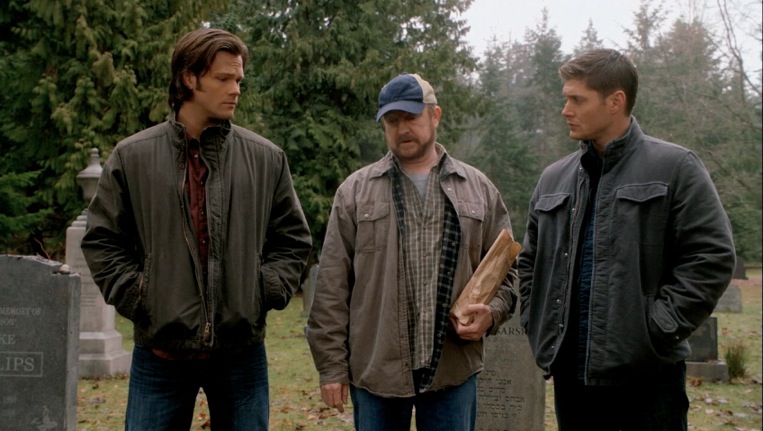
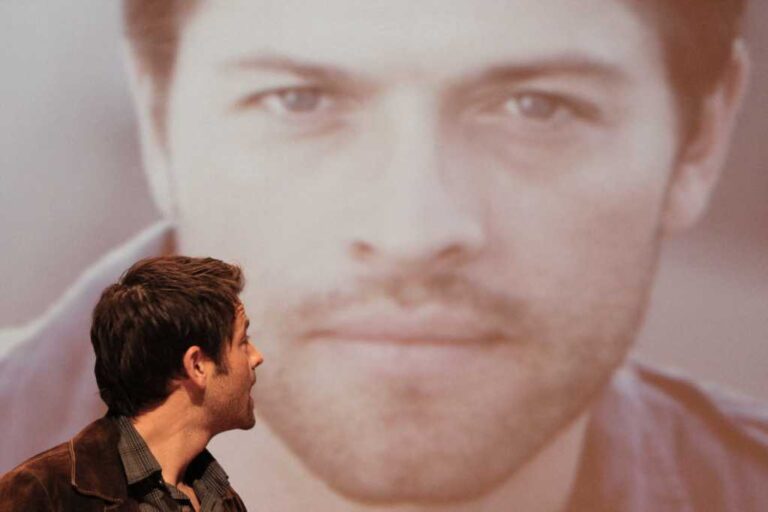
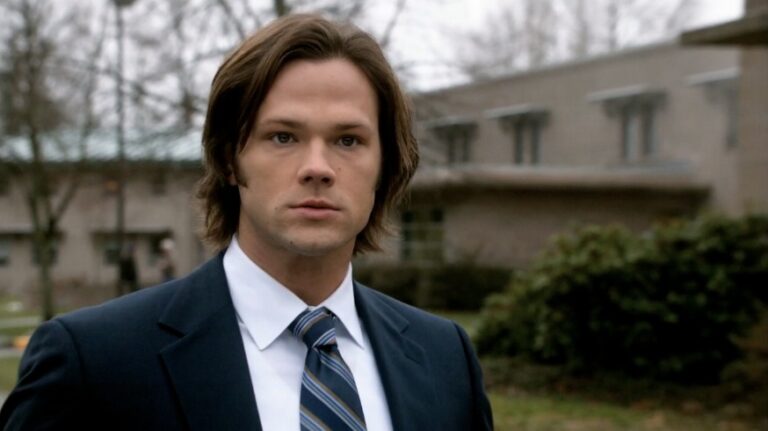
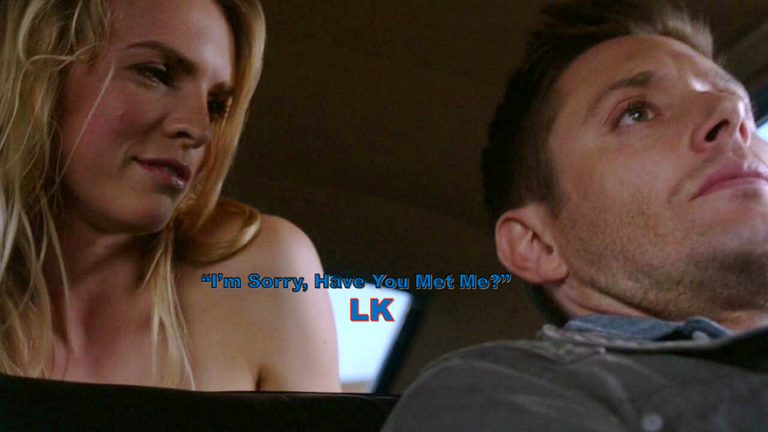
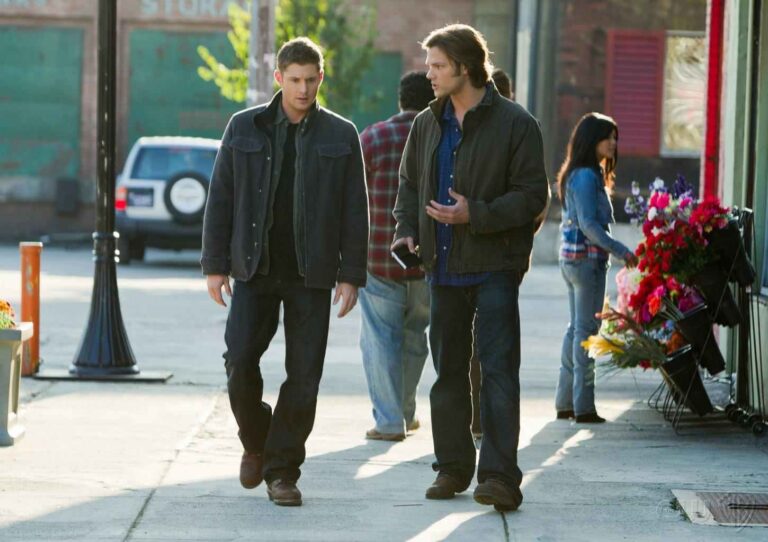
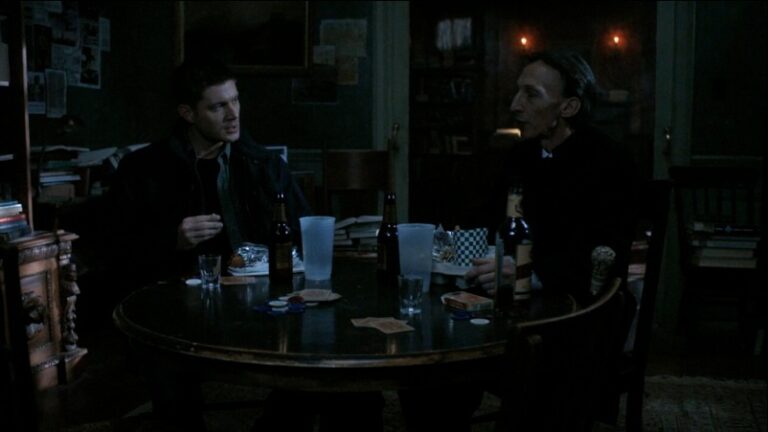
Dean’s speech made me cry. Coming from him it was so powerful – I hope Dean believed what he said for himself, as well as for Bobby and Sam. It breaks my heart that Dean carries such a heavy burden.
These men give everything and get nothing in return. A little self forgiveness would make a difference.
Bravo on this well thought-out and poignant article! It definitely gives one pause on all the machinations that make it difficult to forgive and show mercy. It’s true, depending on the severity of the offense, it may take time for a person to work through the pain and forgive, but it is (as you said) the choice that leads to healing for both parties. I’m so pleased that Dean was the one who made this speech. It’s like he took on yet another beautiful facet. 🙂
Thanks again for writing this!
Makes sense that the speech came from Dean after all he was the one carrying the burden of not being able to forgive. He essentially held all the power in his relationship Sam (who was the one seeking forgiveness).
I also thing the speech applied to Bobby and Sam in that their relationship had suffered a huge blow when RoboSam tried to kill Bobby and we saw in Like A Virgin that Bobby was struggling to forgive and forget. It kinda seemed like Dean was making a point to Bobby-‘look how crap you feel because Rufus couldn’t forgive you and now look what you’re doing to Sam’I know the writers sort of gave Sam and Bobby the magic fix because I mean Bobby seemed totally fine with Sam all of a sudden but I thought an acknowledgement of Bobby forgiving Sam needed to happen in some form or another and I think Dean’s speech was just that.
Sorry about the rambling
Yes, I too think it was a little odd that for one who couldn’t even look at Sam, Bobby was all of a sudden fine with him. I get that there are many things to address in a few episodes but this matter was important and deserved some more elaboration. I guess it happened off screen, which seems to happen often in Supernatural.
Amazing article.
Forgiveness is a powerful force. Even if the forgiven doesn’t give a flying fudge, it heals the forgiver.
Now maybe I am going crazy, but I’d read this earlier and all the comments, but was unable to post right then. I could have sworn there was a commenter who spoke of how forgiveness shifts the power dynamic in a relationship, and how Dean had held that power since Sam needed to be forgiven.
But now I’m either blind and can’t see it, or the poster deleted it. Anyway, that comment got my brain juices flowing and it struck me that for a very long time, Sam held the lions share of power in the brother’s relationship. Dean was desperate to keep his family together, while Sam was not.
After Sam chose Ruby and started the Apocolypse, it was then Dean who had that power. We saw Sam struggling to keep the relationship with Dean through the majority of S5, while Dean became disallusioned with the relationship.
Now with this wonderful speech of Dean’s, I can’t help but delightedly think that neither holds the power. They are on equal footing. Yay!!!
This was very insightful! I wonder how many of us truly think about who we need to forgive and who we need to be forgiven by. Then I wonder how many of us do something about it.